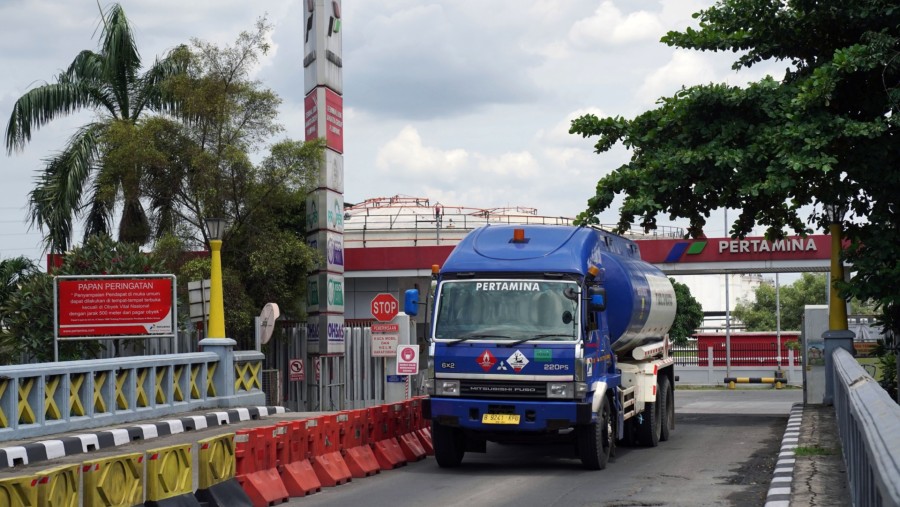Indonesia is entering a critical phase in its energy transition journey. The country continues to rely on fossil fuels while simultaneously pursuing renewable development. Managing this transition effectively requires not only new infrastructure but also smarter strategies in fuel procurement and energy conservation. Two recent developments highlight Indonesia’s growing effort to strengthen national resilience. The first is the growing adoption of a Business to Business or B2B fuel import scheme proposed by academic leaders as a realistic solution to stabilize supply. The second is the increasing public awareness of energy efficient insulation technology that reduces energy consumption in homes and industries. Although both issues seem unrelated at first glance, they are two sides of the same goal. Improving national Energy Security requires both supply diversification and smart energy usage.
Top experts from Universitas Indonesia argue that relying solely on state controlled fuel imports is no longer sufficient. They recommend opening opportunities for private companies to import fuel under a monitored B2B structure. This would reduce the burden on state owned enterprises while ensuring availability during high demand periods. On the other hand, domestic energy waste remains a silent threat. Thousands of households and factories lose significant energy through poor insulation and inefficient cooling systems. By educating the public on thermal insulation and its benefits, Indonesia can slow down energy consumption growth without compromising comfort or productivity. When combined, these approaches could mark a new chapter in Indonesia’s Energy Security roadmap.
The Role Of B2B Fuel Import In Strengthening National Energy Security
Indonesia continues to import large volumes of fuel to meet domestic needs. State owned entities have long been responsible for managing both procurement and distribution. However, demand growth and volatile global oil prices are increasing pressure on national reserves. This is where the B2B fuel import scheme comes into play. Instead of monopolized imports, licensed private companies would be allowed to purchase fuel directly from international suppliers and sell to industrial users under government supervision.
This approach has multiple benefits. First, it injects competition into the market, which can lower prices through better negotiation mechanisms. Second, it reduces the financial load on state companies that are often tied to fixed subsidy structures. Third, it prevents supply disruptions during peak demand or geopolitical turbulence. Energy Security is not only about producing energy domestically. It is also about ensuring that supply chains remain flexible in crisis situations.
However, experts emphasize that such schemes must be carefully regulated. Licensing, quality standards, reporting structures, and distribution monitoring should be strictly enforced to prevent misuse. When implemented correctly, B2B fuel import can operate as a strategic buffer system. It gives the private sector controlled freedom while keeping oversight in the hands of regulators.
Energy Efficient Insulation As A Silent Catalyst For National Savings
While fuel imports ensure continuity of supply, efficiency measures determine how wisely energy is used. Insulation technology is one of the simplest yet most effective tools for reducing energy waste. In tropical countries like Indonesia, cooling accounts for a large portion of electricity usage in homes, offices, data centers, and factories. Poor insulation forces air conditioning systems to work harder, consuming more power and increasing monthly expenses.
Modern insulation materials trap heat, maintain room temperature, and help equipment operate in stable conditions. Industrial facilities that produce or store heat sensitive materials rely on insulation to protect both machinery and workers. In households, thermal insulation allows rooms to stay cooler for longer without constant air conditioning. For cold storage, insulation ensures that refrigerators and cold rooms consume less power while maintaining optimal temperature.
Energy Security is not only achieved through additional supply. It is equally built through avoided waste. When millions of buildings reduce power usage thanks to proper insulation, national electricity demand stabilizes. This reduces the need for expensive power plant expansions. It also cuts dependency on imported fuel for power generation.
Collaboration Between Policy Makers, Businesses, And Consumers
Improving Energy Security cannot rely on a single institution. Fuel import policies require coordination between government, industry players, and regulatory bodies. Meanwhile, insulation awareness requires collaboration between manufacturers, property developers, and consumers. National campaigns on energy conservation should not stop at turning off unused lights. They must encourage long term solutions such as energy efficient building design and mandatory insulation standards.
Some countries require all new buildings to meet minimum insulation ratings before receiving occupancy permits. Indonesia could implement a similar system through phased regulations. Tax incentives for businesses that apply industrial grade insulation could accelerate adoption in factories and warehouses. Meanwhile, retail awareness campaigns can introduce affordable insulation products for small homes. When technology becomes accessible, people are more willing to adapt.
Universities and research institutions can support both the B2B fuel import system and insulation adoption through continuous evaluation. Data collection, case studies, and pilot projects can provide valuable insights for regulators. Energy Security is not a fixed destination. It is a constantly evolving process that must adapt to economic growth and climate threats.
Toward A Balanced And Sustainable Energy Future
Indonesia’s Energy Security will depend on its ability to combine supply diversification with consumption efficiency. B2B fuel import schemes offer flexibility in procurement. Efficient insulation offers long term savings at the user level. One operates on a macro scale while the other operates at the micro level. Yet both move toward the same national objective. Reducing vulnerability and building resilience.
More policies are expected to follow. Future strategies may include microgrid development, rooftop solar integration, electric vehicle incentives, and district cooling systems in urban areas. Each solution plays its role. But without solid foundations such as fuel stability and efficient usage, those innovations will struggle to operate effectively.
Energy Security is not achieved through a single breakthrough. It is built through consistent improvements in both infrastructure and mindset. When Indonesia embraces both B2B import strategies and insulation technology, it sends a strong message that resilience is being designed, not improvised.
Read More






 Tuesday, 24-02-26
Tuesday, 24-02-26







